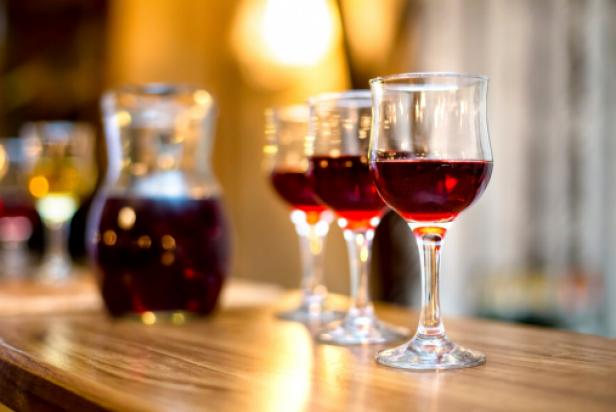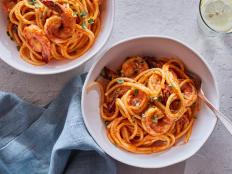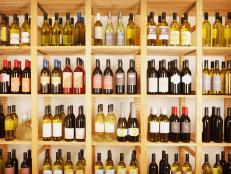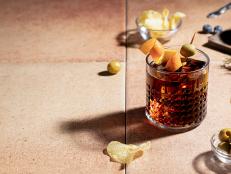Is Organic Wine Better for You?


The Environmental Working Group ranks grapes No. 3 on the dirty dozen list due to the high level of pesticide residue found on conventionally farmed grapes. Thus, the nonprofit, nonpartisan consumer advocacy organization encourages shoppers to purchase organically grown grapes as the healthier alternative. Grapes are also, obviously, the main ingredient in wine. So the question is, how important is it that your vino also be organic? Are pesticides the only consideration when making that decision? What additional benefits are there to purchasing organic wines? And most importantly: How does organically produced wine differ in taste? We put the questions to two experts — Joe Campanale, executive beverage director of Epicurean Management, the team behind New York’s wine-centric dell’anima, L’Artusi, L’Apicio and Anfora, and Appellation Wine & Spirits owner Scott Pactor — to help you make an informed decision during your next night out on the town or visit to the local wine shop.
Joe Campanale: Sulfur dioxide is a natural part of the winemaking process; it is a byproduct of fermentation. As such, every wine, organic or not, has some level of sulfur dioxide in it. However, most winemakers will add additional SO2 to the wine at various stages because it is an antioxidant and antibacterial, depending on the country where the wine is being produced — most places allow for 160 parts per million for reds and 200 ppm for whites. Organic regulations still allow for the addition of sulfur, but at lower levels. Large-production wine tends to have significantly more sulfur than artisan wine, and all wine has significantly less than dried fruit.
JC: Both biodynamic and organic wine eschews agrochemicals in the production and winemaking process. Biodynamics refers to a type of grape-growing that is based on the teachings of Rudolf Steiner and treats the vineyard as its own ecosystem that is dependent on its surroundings and the phases of the sun, moon and stars. As such, all biodynamic wines are organic, but not all organic wines are biodynamic. One debatable point here is that some people believe that unless you are certified by one of the regulating bodies, then you should not be able to say you make wine in this manner, however, many people choose not to get certified for a variety of reasons.
JC: For sure more important. I think that the biggest change is that a decade ago it was a big important thing to distinguish yourself if you were making an organic wine. Now there are so many people who grow organically that it's not as much a talking point anymore.
JC: I believe that organic wines are better for the planet, better for you and can taste more distinctive. So I would say yes, but with a big caveat: Not all organic wines are great. You still have to be a very talented and hardworking grape grower and winemaker who has a very gentle touch in the winery.
JC: Most of the wine we serve in the restaurants is organic. I spend a lot of time tasting, always trying to find the best in each category. Often it turns out that the best wine is either organic or made in a very sustainable way.
Scott Pactor: At the time of opening, 10 years ago this September, and leading up to now, our focus has been on organic and biodynamic wine. We’ve evolved to have a better understanding over the years that, while the vineyard work is important, cellar work is important too. We’re now asking winemakers about cellar work as far as vinification and fermentation.
SP: I look at it as “organic plus” or a hands-on approach to organic farming. We’re trying to demystify it because there are aspects that can seem hocus pocus-esque. We focus on the parts that seem less abstract. Some of the preparations include things like using chamomile tea or horsetail or yarrow in the winemaking process. Each one plays a different role as far as how it enhances the vineyard and photosynthesis. Chamomile helps how they are digested. The thought is it is good for the body — you may drink it to soothe an upset stomach — and also good for soil. It’s a lot of trial and error.
SP: A producer of Champagne, Bertrand Gautherot of Vouette et Sorbée, told me he played music in his vineyard to help slow vegetation. But what he found was that it was having the opposite effect and the vines started growing faster. In his words, “The grapes became too happy.”
SP: The use of sulfur can quiet the effect of the wine. When you have wines with no added sulfur, they can be very expressive.
SP: There are multiple reasons. No. 1 would be that the grapes are necessarily washed before fermentation begins, so you can’t have chemical residues on the grapes. There have been studies, and wines that have been organically produced have much less residue than conventionally farmed ones. You can draw a correlation that organic wine is healthier for you.
No. 2 is the work in the vineyard. If you’re farming with less inputs, then the workers are exposed to fewer chemicals.
The third, the health of the soil is less tampered with. Whether it’s the life in the soil or the animals that are living in and around the vineyard — all aspects are affected by the chemicals and the amounts that are applied.
Kiri Tannenbaum is a graduate of Le Cordon Bleu Paris and holds an M.A. in food studies from New York University where she is currently an adjunct professor. When her schedule allows, she leads culinary walking tours in New York City and is currently at work on her first book.































